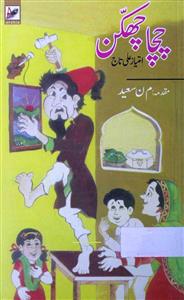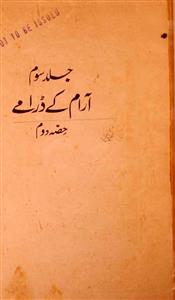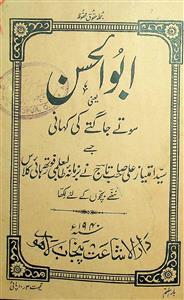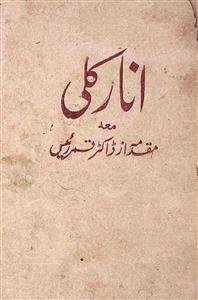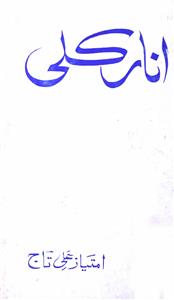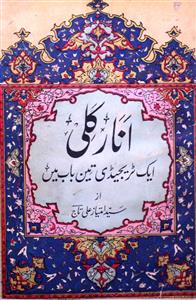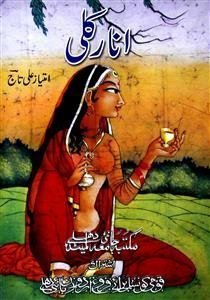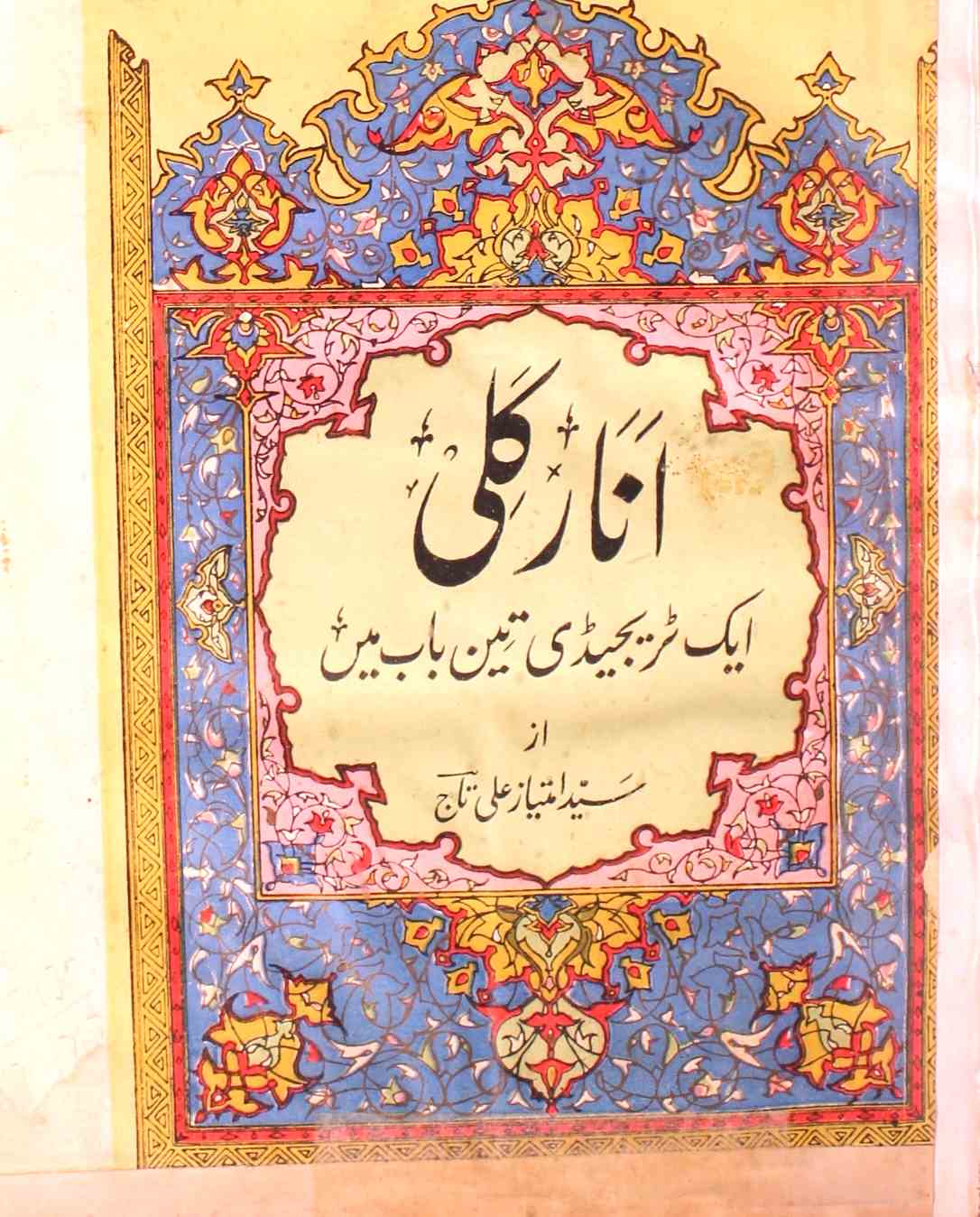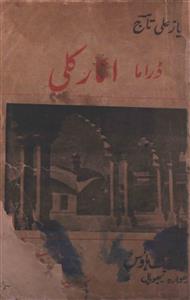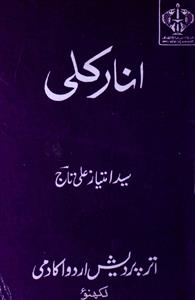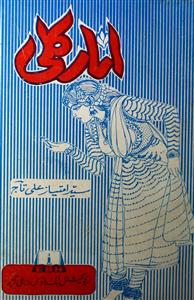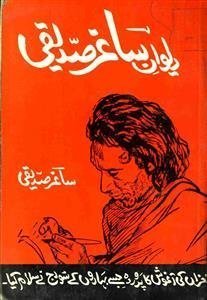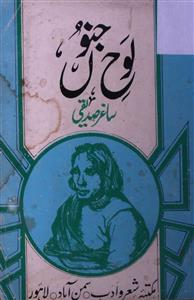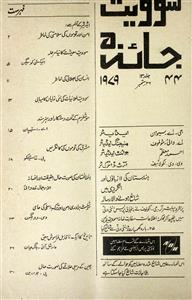 For any query/comment related to this ebook, please contact us at haidar.ali@rekhta.org
For any query/comment related to this ebook, please contact us at haidar.ali@rekhta.org
About The Author
Anar Kali and Chacha Chakkhan are the two renowned characters that the readers of Urdu and other languages and cultures are well-acquainted with. With the uniqueness of their disposition, language, and behavior, they have become the parts of our collective consciousness. Many would wonder as to who created these characters but only a few would know that these imperishable characters were created by none other but Imtiaz Ali Taj.
Imtiaz Ali Taj belonged to a family of luminaries. His grandfather, Syed Zulfiquar Ali, had received his education at Delhi’s St. Stephens College and had the distinction of being a disciple of major scholar, teacher, and poet of his time, Imam Bakhsh Sehbai. Taj worked initially as a Deputy Inspector of Schools but was later promoted as an Assistant Commissioner. His father, Mumtaz Ali, was a close friend of Sir Syed Ahmed Khan and a class fellow of Shaikhu-ul-Hind, Maulana Mehmood Hasan. His mother, Mohammadi Begum, was the editor of Musheer-e-Maader, and his wife, Hijab Imtiaz Ali was the first major short story writer of her times in the Indian subcontinent.
Imtiaz Ali Taj was born on October 13, 1900. He took his degree of graduation from Government College, Lahore and joined M. A. (English) course but could not write the final examination. He was supposed to be one of the most intelligent students of his college and took very active part in the cultural and literary activities there. He was especially interested in theatre and mushaira as he was interested in poetry since his early as a practicing poet. Taj was equally interested in the genre of fiction and he wrote his first short story entitled “Shama aur Parwana” at the age of seventeen. In addition to his creative writing, he also pursued his interest in translation and took to translating English authors like Oscar Wild, Oliver Goldsmith, and several other less known authors.
Taj also wrote literary essays and biographical tracts. One of his biographical pieces entitled Bharat Sapoot is a biography of Mahatama Gandhi to which Pandit Moti Lala Nehru wrote the preface and praised his work immensely. His essays on Mohammad Hussain Azad, Hafeez Jalandhari, abd Shaukat Thanavi also deserve special mention. This apart, Taj was an authentic and respectable journalist who believed in values. He had started his career as a journalist with Tezeeb-e-Niswaan and started a monthly journal called Kehkashaan at the age of eighteen which acquired an identity of its own within a short span of time.
Taj had a very comprehensive personality and he could retain remarkable control over his multiple commitments as a playwright, translator, journalist, radio feature writer, screenplay writer, and film producer. He emerged, however, as a name to reckon with when he wrote his iconic play called Anar Kali. It is rightly considered as his masterpiece. On account of its literary merit and appeal, it has also become a compulsory part of the syllabi everywhere. This play is remarkable, in particular, for its characterization, scenic representation, and dialogues. A subject of research in the universities, it has now become a canonical text by this iconic writer of multiple talents.
Taj wrote some more plays and also edited collections of plays especially the classical plays like those by Aaram, Zareef, and Raunaq. After his association with Majlis Tarrqi Adab, Lahore, he published several edited volumes of plays which proved to be an important step towards the revival of classical theatre. He also established Taj Productions Ltd. and contributed to films by writing stories, screenplays, and dialogues for films.
Persons of eminent stature like Imtiaz Ali Taj also become controversial sometimes. He too had to face bitter criticism and face onslaughts of conspiracies. The last days of his life were rather tragic. On April 18, 1970, while he was asleep on his terrace, two veiled persons reached that secluded place and attacked him with knife. His wife Hijab Imtiaz Ali was also lying close by. He suffered knife stabs and bled profusely. He was immediately rushed to the hospital where he gained consciousness after surgery and came out of danger. This recovery, however, did not last long. He started deteriorating fast and finally succumbed to his deep injuries on April 19, 1970. His assassins could neither be traced ever, nor could any case be registered to investigate his murder in cold blood.
 For any query/comment related to this ebook, please contact us at haidar.ali@rekhta.org
For any query/comment related to this ebook, please contact us at haidar.ali@rekhta.org
